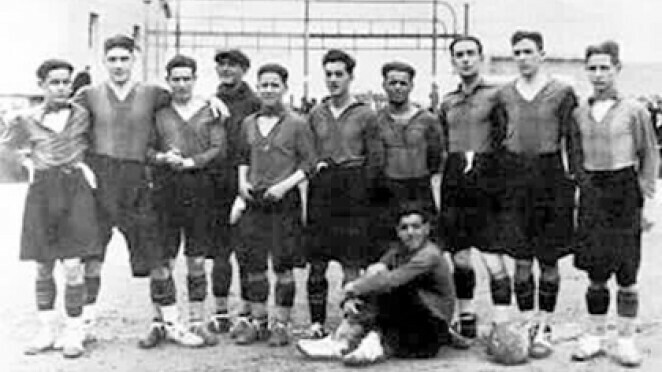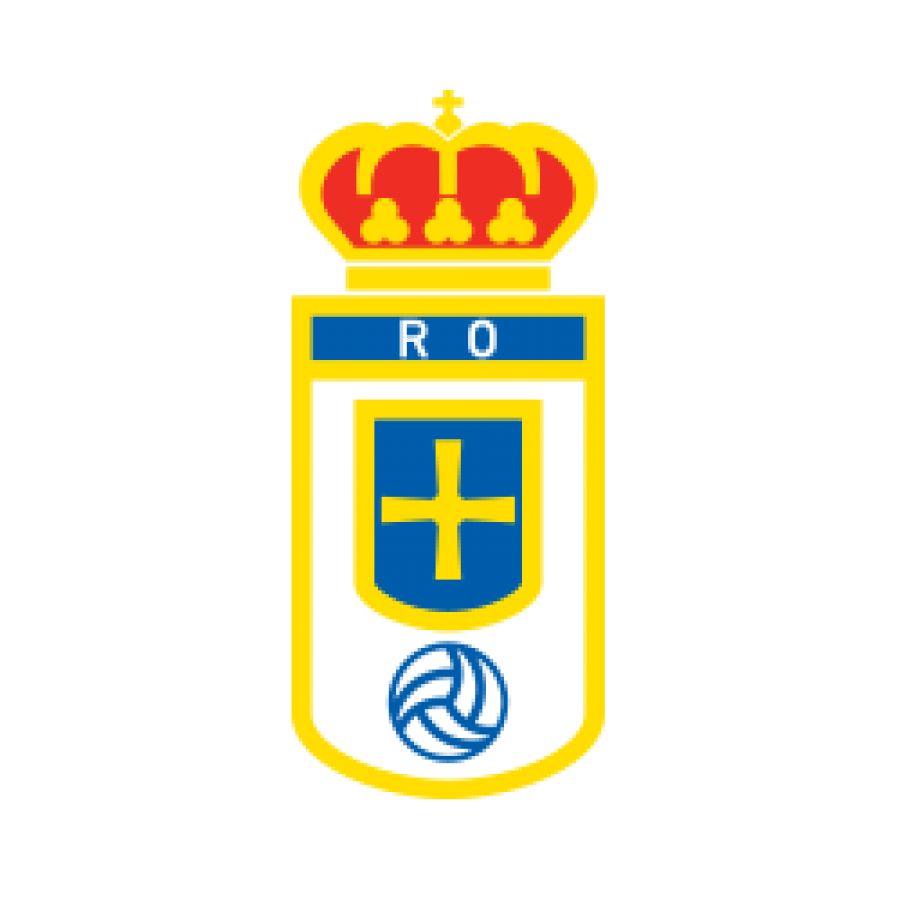THE STRUGGLE FOR SURVIVAL (2001-2012)

After thirteen seasons in a row in La Liga, Real Oviedo’s only goal was to get back to the top immediately, as that was a safe place to keep all those lurking financial problems at bay. Once it became clear that the Carbayón side could not get that much wished-for promotion, all kinds of problems began to spring up: an enormous debt was unveiled and the Real Oviedo’s future began to look uncertain.
Eugenio Prieto, who had been the executive manager for the last fourteen years, left the club and Manuel Lafuente became the new one. At the end of the 2001-2002 season, he managed to prevent Real Oviedo from being relegated administratively as some unpaid players had sued the club.
After that sour season, a weakened squad performed so poorly that they ended second-to- last in 2003. Therefore, Real Oviedo went down to 2nd B for the second time ever but, on top of that, this time the club sank even deeper as it was administratively relegated to the fourth tier of Spanish football. The footballers rejected all the payment guarantees which had been offered to them. On 1st August 2003 Real Oviedo was officially in the fourth flight, with no players and with a suffocating debt, which forced the club to enter administration in order to avoid liquidation.
In such a critical situation, at the City Council, the mayor Gabino de Lorenzo would give all his support to a new team named Oviedo ACF. This replica team was set up from a humble club of the city called Astur CF, which was in the third tier and whose aim was to replace Real Oviedo as the new main team of the city.
As a consequence of all these massive blows, Real Oviedo supporters rose up to save their club from dying out and fought hard to keep it alive, something that seemed quite unlikely. Now the Blues had to play on the barrizales, those muddy pitches in the fourth flight of Spanish football, an unseemly place for Real Oviedo. However, grass-roots loyalty went far beyond what could have been expected. Fans stood up for their beloved club and worked hard in everything that was necessary to keep their team alive. Real Oviedo got more than 10,000 season ticket-holders and the attendance to some matches surpassed 25,000 fans, outnumbering several stadiums from First Division. While the footballing side of the club was gradually getting back to normal, even though two seasons were needed to get promoted to 2nd B; at an administrative level, Manuel Lafuente got all those Real Oviedo’s creditors to sign a Company Voluntary Agreement and solved the bankruptcy proceedings successfully.
When it looked like all the hardest times had been left behind, the subsequent boards of directors mismanaged the club in such a harmful way that it led Real Oviedo to be in peril once again. Besides, in 2007 the Blues would top it all off by getting relegated to the fourth tier on the pitch. This time another couple of seasons would be necessary to be promoted to the third tier.
As a result of the suicidal mismanagement carried out by the board, in the summer of 2012 Real Oviedo had to live through another ordeal. This time a new board of directors, led by Toni Fidalgo as the chairman, had taken over and were forced to call for an increase in share capital, which could end up with the club in liquidation if it was unsuccessful. Once again Real Oviedo supporters, this time teamed up with new supporters worldwide, unleashed their mighty faith and got a place in Real Oviedo’s hall of fame. They acted in a similar way to what they had done in 2003, but this time they raised almost the whole €2 million which were needed to avoid the demise of their club. On this occasion, thanks to the internet and social networking, the fundraising spread rapidly throughout the planet and ended up with the arrival of Carlos Slim with his Grupo Carso as the major shareholder.
Strengthened by all that has happened since November 2012, the Carbayón side are still trying hard to get promoted to Second Division, from where they can return to the place where they really belong, La Liga.
